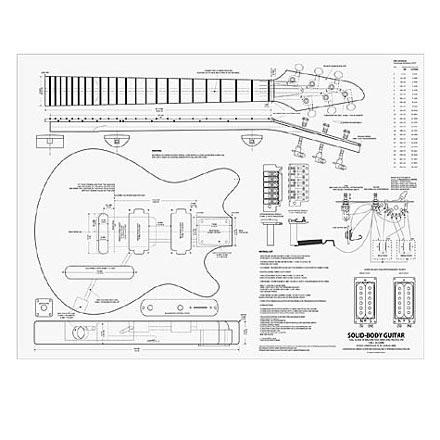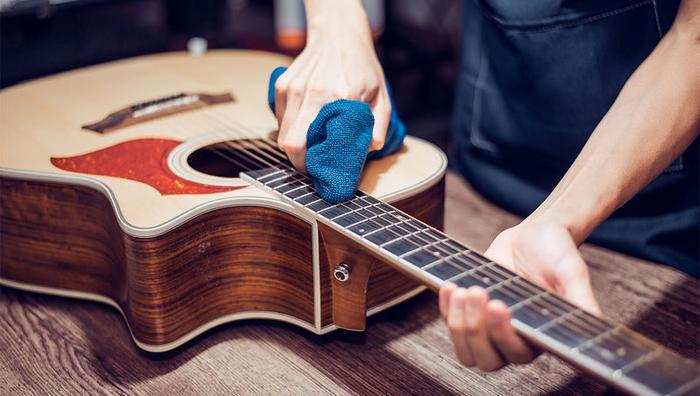With over two decades in the guitar industry, I’ve seen countless players fall in love with instruments that become their lifelong companions. One such model that consistently stands out is the Epiphone Les Paul Special II. In my experience, it’s more than just an affordable guitar; it’s a gateway for budding musicians to explore their passion without breaking the bank. Our team has collaborated with numerous guitarists and industry experts to understand what makes this instrument a perpetual favorite.
I’ve personally tested the Epiphone Les Paul Special II alongside other budget-friendly options to assess its prowess. It’s all about finding where budget meets quality. I’ve listened to seasoned players and newcomers alike to compile a comprehensive review addressing common concerns, from its sound profile to its build quality. Dive in with me as we explore why the Epiphone Les Paul Special II remains a beloved choice for many.
Features of the Epiphone Les Paul Special II
Body and Neck Construction

Did you know that the materials used in a guitar can dramatically affect its sound and playability? In my years as Editor in Chief, I’ve discovered that the choice of woods isn’t merely aesthetic; it deeply influences tone and resonance, key ingredients for any player’s style. The Epiphone Les Paul Special II showcases this brilliantly through its construction. The body and neck combine the warm resonance of mahogany with a slim, comfortable profile, perfectly balanced for optimal playability and sound quality.
The body’s mahogany wood type resonates with rich, warm tones, making it an excellent choice for rock and blues. The neck construction features a bolted design that, while straightforward, offers easy maneuverability across the frets, appealing to both budding and seasoned guitarists. Each strum reveals the guitar’s potential, allowing for a soulful connection between the player and the instrument. Seamlessly transitioning from body and neck, let’s delve into the electronic heart of this model, examining how the pickups electrify its sonic capabilities.
Pickups and Electronics

What role do pickups play in defining a guitar’s sound, and how can they elevate your playing experience? Delving into the realm of pickups and electronics, I find these to be the heart of any electric guitar, especially in a model like the Epiphone Les Paul Special II. Having reviewed numerous pickups over the years, I can attest to the transformative effect of quality electronics—especially in budget guitars trying to punch above their weight. This instrument features dual open-coil humbucker pickups that deliver impressive sound quality, offering a fuller, warmer tone that competes with pricier models.
These pickups excel in providing that classic Les Paul sound signature, making them ideal for rock, blues, or jazz enthusiasts. Their robust output ensures that even players experimenting with different genres can find their sweet spot. The Epiphone Les Paul Special II’s ability to harness such versatile tonal ranges relies heavily on its electronic setup. Therefore, understanding and appreciating how these components work is crucial for maximizing your playing potential and truly enjoying this guitar’s capabilities.
User Reviews and Opinions

How do real users perceive the Epiphone Les Paul Special II, and what can we learn from their experiences? Between my extensive work in music journalism and my own playing journey, I’ve seen firsthand how passionate feedback from players shapes perceptions of instruments like this. It’s one thing to dissect the specs on paper, but it’s another entirely to tap into the collective wisdom of those who have embraced the guitar in their personal musical odysseys.
As I delved into user reviews, one sentiment was clear: the Epiphone Les Paul Special II inspires a surprising level of enthusiasm. Many users appreciate its ability to deliver rich, full tones typically associated with much pricier models. Players often express that this guitar embodies what they describe as a splendid balance between affordability and performance. For novices stepping onto their guitar journey, this instrument provides a solid foundation without feeling like they’ve sacrificed quality for cost. From strumming acoustic covers to nailing electrifying solos, many attest that it feels like a genuine partner in creativity.
Importantly, the Epiphone Les Paul Special II seems to play a pivotal role in bridging the gap between an initial interest in guitar-playing and a full-blown passion. Users have shared how owning this guitar has kept their desire for learning and experimenting alive. As I’ve observed in countless player reviews, this guitar doesn’t just sit idly in the corner; it begs to be picked up and played, thus igniting a profound connection that fosters long-term dedication to the craft. Through these voices, the Special II emerges not only as a dependable tool but as a cherished companion in the personal stories of many guitarists.
Comparisons with Other Guitars
Epiphone Les Paul Special II vs. Similar Models

In the sea of entry-level guitars, what distinguishes the Epiphone Les Paul Special II from its peers? Having spent years analyzing and comparing guitars, I find that subtle differences can often lead to monumental shifts in a player’s choice—let’s dive into those nuances. The Epiphone Les Paul Special II holds a unique position in the bustling market of entry-level guitars, thanks to its well-balanced mix of affordability and sound quality. While models like the Squier Bullet Strat or the Yamaha Pacifica 012 are contenders, the Les Paul Special II draws on its iconic lineage, offering beginners a taste of classic Les Paul resonance.
What sets it apart is its dual humbucker configuration, which delivers a richer, more full-bodied tone compared to the typically twangy single-coil pickups found in many peers. This propels it to a more authoritative level when playing rock or blues. Moreover, the light, sleek design ensures that new players aren’t burdened by cumbersome necks or bodies, inviting longer practice sessions without fatigue.
Given its accessible price point, the Special II transcends its role as just a starter guitar—it becomes a bridge to more advanced Les Paul models. This comparison matters, not just in weighing specs but in understanding how the Epiphone Les Paul Special II aligns with a musician’s long-term journey. Our exploration into its unique attributes will not only aid in making an informed choice but will inspire confidence as you stride forward on your musical path.
How it Stacks Up Against Higher-End Models

In my years of examining guitars, an intriguing question often arises: Can an affordable guitar like the Epiphone Les Paul Special II truly stand up to high-end models? This curiosity drives many of us deeper into the heart of what makes a performer. Renowned as one of the best budget guitars, the Special II isn’t crafted to mimic luxury offerings in terms of ornate features, but rather to bridge accessibility with musical prowess.
Now, when we compare the Special II with its upscale siblings, it’s essential to focus on the substance. Of course, higher-end models dazzle with exquisite woods and intricate finishes, but the Special II shines in its simplicity, delivering a pure, untainted sound and remarkable playability that more than satisfies everyday players. The humbucker pickups provide resonance that mirrors its pricier counterparts and, with a proper setup, can project tones that defy its price bracket.
From my hands-on experience, I’ve observed that the Special II offers a reliability that often surprises even the most discerning musicians—providing expressions of blues, rock, and jazz with palpable authenticity. It may not replace bespoke instruments for professional stage shows but, in studio sessions or casual gigs, it’s a workhorse. With the right touch, this Epiphone can indeed elevate a player’s experience, suggesting that quality doesn’t always entail lavish expenditure. As we explore this further, let’s embrace how the Special II makes high-quality musicianship attainable for everyone.
Guitar Setup and Maintenance Tips

Is your guitar performing at its best, or could a simple setup bring out its full potential? This is a question I’ve asked myself countless times during my journey through the world of guitars. Throughout my years of reviewing gear, I’ve learned that a proper setup can transform an instrument, and the Epiphone Les Paul Special II is no different. This guitar might be entry-level in pricing, but with the right tweaks, it can punch well above its weight class.
From my experience, the first step in unleashing the potential of your Les Paul Special II is the setup of its action—the height of the strings over the fretboard. A high action can make even simple chords a chore, while a low action can lead to fret buzz. Striking the right balance is key, and it requires a delicate hand and a keen ear. Personally, I find starting with measurements using a ruler, then adjusting the bridge height incrementally, yields the best results.
Another crucial aspect is neck relief. By adjusting the truss rod, you can ensure the neck is neither too straight nor too bowed. This adjustment personally feels like fine-tuning an instrument to play your music, your way. Finally, don’t forget about intonation—correcting this will ensure every note rings true across the fretboard.
FAQs
What are the main features of the Epiphone Les Paul Special II Guitar?
How does the sound quality of the Epiphone Les Paul Special II compare to other guitars?
Is the Epiphone Les Paul Special II Guitar suitable for beginners?
What makes the Epiphone Les Paul Special II Guitar affordable?
Conclusion
Is the Epiphone Les Paul Special II the best option for budget-conscious players, or are there better alternatives? In my extensive journey through guitar journalism, I’ve often found that this particular model stands out in the realm of affordable guitars. After carefully inspecting its features, construction, and distinctive tone, I can confidently say that it delivers remarkable value. With its solid build, functional electronics, and satisfying sound, the Epiphone Les Paul Special II truly caters to beginners and seasoned guitarists looking for a reliable, low-cost option.
Having explored numerous comparisons and candid user reviews, I find it nearly unparalleled in its price range. Whether you’re just starting out or seeking a backup instrument, the answer is clear: the Epiphone Les Paul Special II deserves your attention. My hope is that this review aids you in making an informed decision, drawing from both the facts and the personal insights I’ve gathered over decades in this field.

Michael Molenda, the transformative Editor in Chief of Guitar Player magazine from 1997 to 2018, revolutionized its content and expanded its influence. With over 2,500 published works, including in-depth interviews and technical analyses, he’s a giant in guitar journalism. Post-Guitar Player, he launched CONTENT BY MOLENDA and co-founded music websites, bringing his unmatched expertise to the forefront of music marketing. At Fretterverse, Molenda continues to shape the guitar world with insightful commentary and trendsetting journalism.
